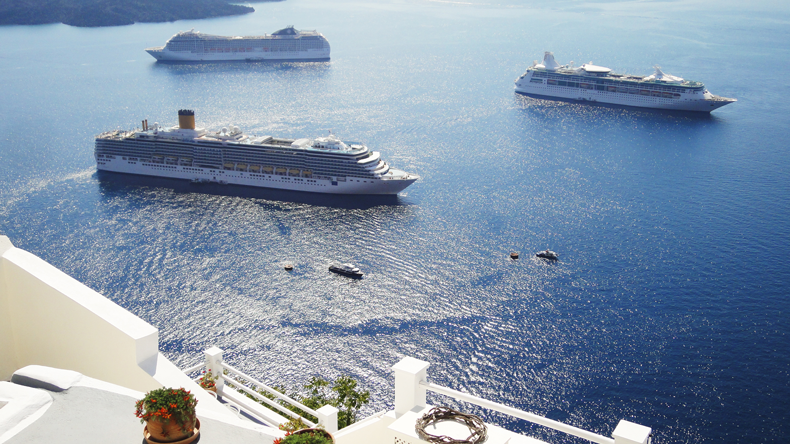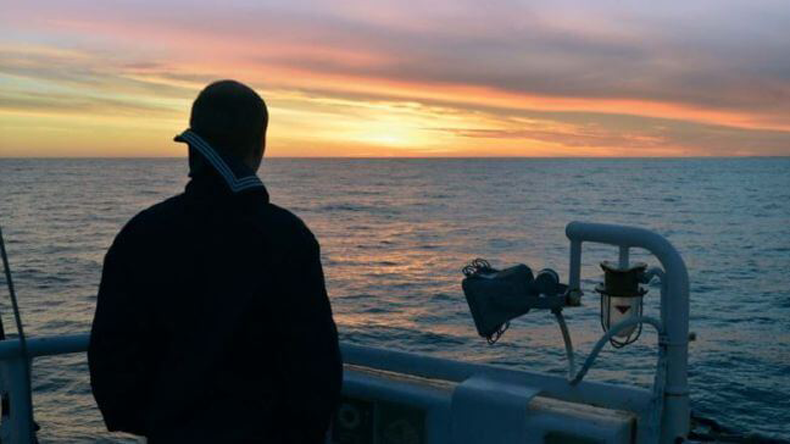From the News Desk: Tanker rates spike and coronavirus restrictions hit ferries
Provisional deals for crude freight shipping reach unprecedented levels, ferry companies suffer from border closures and shipping struggles with crew changes
A week-long very large crude carrier chartering spree by Saudi Arabia has sent tanker rates into uncharted territory
JUST over a week on from the start of the Saudi Arabia-led oil price war and very large crude carriers are being chartered at increasingly higher rates on a daily basis.
Reliance chartered the 2004-built, 306,206 dwt Princess Mary on Monday for a rate that equates to more than $411,000 per day, according to fixtures reported by tanker commercial pool Tankers International. The deal is still on subjects, however.
The vessel is off Singapore after loading a cargo of Venezuelan crude and sailing to an area in the region where other VLCCs are kept for floating storage. The tanker’s beneficial owner is Greece-based Andreas Hadjiyiannis, according to Lloyd’s List Intelligence.
The jump in rates followed an astonishing four days of activity that saw Saudi shipping company Bahri book 15 VLCCs in the space of four days, driving up rates 12-fold on key routes to Asia, sending futures trading volumes to a record and spooking other charterers to fix tonnage at ever-increasing levels. Some 52 VLCCs were reported chartered last week.
Bahri triggered the tanker rally after the kingdom dropped oil prices and launched a war for market share, pledging to flood the market with cheap crude. Saudi oil production will rise to more than 12m barrels per day from current levels of 9.7m bpd.
VLCC tanker earnings are now assessed at the highest levels since the Iraqi tanker wars in the 1980s.
“VLCC period rates are higher on the back of increased oil supply; higher because of the contango market this has created, and the consequent floating storage play,” ACM Braemar said in a report earlier this week.
“This has similarities to four to five years earlier, with a surplus of oil on the water, and weak spot crude prices generating demand for inventory building and floating storage opportunities abound.”
The market is now waiting to see if the sky-high tanker freight rates can be sustained with the coronavirus outbreak paralysing air and land transport in an increasing number of countries and leading to a freefall in demand for jet fuel, diesel and gasoline.
Ferry operators hit by falling demand
With Europe now at the global epicentre of the coronavirus crisis, countries are taking considerable steps to limit the movement of people, including closing borders to international travellers.
Greece has banned all passenger traffic on cross-Adriatic ferry services, following Spain’s decision to block people arriving from Italy.
Last week, hundreds of passengers and crew on board the ropax ferry Blue Star Myconos were delayed by more than half a day at a island port awaiting the result of a coronavirus test on a crew member who fell ill and was taken off the vessel at the previous port.
The seafarer eventually tested negative for the virus, but Association of Greek Passenger Shipping Companies President Michalis Sakellis said the sector generally was on “very high alert” because of fears of the virus spreading.
Mr Sakellis also told Lloyd’s List that the country’s ferry sector faced taking an “enormous” economic hit because of coronavirus considerations. Traffic on all routes was “about 50% less than last year at this time”, he said, adding “Unless a miracle happens this is going to be a very difficult year for our economy as well”.
Elsewhere, Denmark closed its borders to all international travelers at the weekend with major consequences for ferry operators. Passengers numbers were already down and some companies had already temporarily suspended or reduced connections.
But Danish Shipping Companies chief executive Anne H Steffensen praised the government for swiftly rolling out a temporary wage compensation scheme to help cover the cost of employees who would ordinarily be laid off in times of low demand.
Under the government scheme, companies that experience a decline in orders and fewer customers because of the coronavirus, and therefore cannot employ their staff, can receive a reimbursement of up to 75% of the salaries for the employees for three months from March 9 to June 9.
“As shipping companies, we have a very special corporate social responsibility. Both to tie the country together, but also to make sure the goods are delivered to the supermarkets, so of course we keep sailing,” said Ms Steffensen.
“But when almost no travellers are on board, it goes without saying that not many staff is needed. That is why I am pleased that the agreement here gives the shipping companies the opportunity to repatriate staff to maintain as many jobs as possible in the shipping companies and on our ships.”
Ferry workers in Sweden have not been so fortunate, however, with Stena Line announcing the loss of 950 jobs after a “drastic decline” in bookings.
The redundancies, at subsidiary Stena Line Scandinavia, include positions on board and offshore on nine Swedish-flagged vessels and in sister companies Stena Line Travel Group and Retail & Food Services, the company said.
“Due to the current situation we are facing, we have no choice but to adjust our operations and our costs to limit the drop in demand and secure the continuity of our freight operations,” said chief executive Niclas Mårtensson.
The company said traffic to Sweden, Denmark, Poland, Germany and Latvia had stopped to a large extent as those countries imposed travel restrictions.
Crew changes
Meanwhile, while Italian ports remain open, three of the key trade associations in the country have written to the government highlighting some of the most serious operational issues the country’s shipping sector is facing. Italy is tackling Europe’s biggest coronavirus outbreak with cases growing at a rate much higher than other countries.
Among the issues the sector if facing are the closure of foreign ports to Italian ships, but also issues related to crew safety such as being unable to make crew changes and the expiration of certificates for seafarers.
Crew changes also remain blocked in China despite Beijing recently announcing a partial easing of restrictions.
Shipping companies should be informed of the anti-epidemic measures taken by the ports at which their ships are arriving, and should make timely arrangements for the relief of seafarers currently on board whose service contracts have expired, the transport ministry said in a notification late last week. The requirement, though, only applies to crew on China-flagged international-trading ships.
China-based shipmanagers speaking to Lloyd’s List said the government needs to step up its efforts to make crew changes easier.
One said that since February, their firm had successfully arranged only one embarkation at a port in Shandong province after consulting with the local government. “And that was an exception,” the executive added. “The latest policy [from Beijing] only shows a mild effort. There is nothing substantial to lift the restrictions.”
That said, Fleet Management head of business development Vikas Grewal said that the Chinese authorities were allowing Chinese crew to return home on a case-by-case basis. “This move is aimed at alleviating the Maritime Labour Convention issues,” he told Lloyd's List.
Enforced delays to crew changes as a result of the coronavirus outbreak are reinforcing a situation in which seafarers are safer on vessels than they are on land, according to Danica Crewing Services managing director Henrik Jensen.
His opinion echoes similar views expressed by some seafarer charities, which have cautioned against denial of shore leave by pointing out that the disease is more widespread in port cities than on ships.
“Experts are of the opinion that people are at a high risk of being infected when they travel closely together in a confined space, such as in aeroplanes and airports,” said Mr Jensen. “Our crew are therefore at much greater risk during their travel to the vessel, or home from it, than they are while serving on board.”
Last week, two terminals in the UK and Germany placed blanket bans on seafarers coming ashore and denied access to vessels for chaplains.



